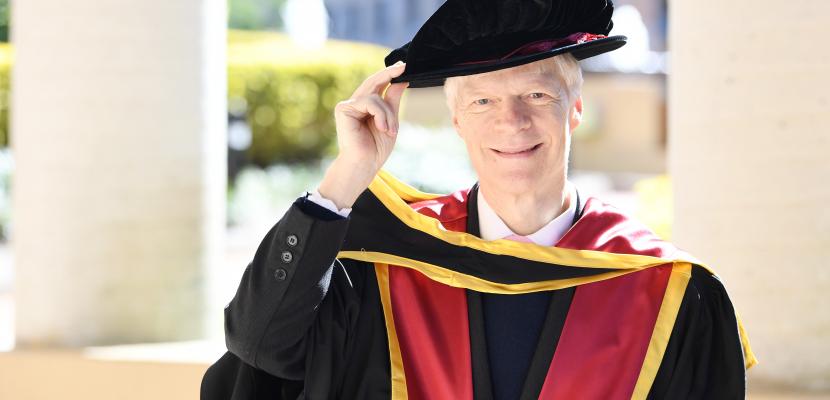
Does the doctor really make a difference to a patient’s health?
It might seem like a silly question, but the answer - as newly minted PhD Christoph Schnelle discovered - is more complex than you may think.
Dr Schnelle set out to measure how much impact an individual physician has on the patient they are treating. He discovered it was a question that had never been asked before in a review of the evidence.
“Billions of medical interactions every year consist of three items – the doctor, the patient and an intervention,” he said.
“The doctor is part of every one of those medical interventions. So I checked out whether the doctor actually makes a difference to the patient’s health in addition to undertaking a diagnosis and supplying the intervention.
“What I found unbelievable is that until I came along there was no systematic research on whether doctors by themselves affect patients’ physical health.
“So I wanted to look at whether, after taking into account all known information - intervention outcomes, demographics, patient risk factors - doctors make a difference to patients’ physical health.”
It turns out that doctors can make anything from a negligible to an enormous difference.
“There was a long-running Randomised Controlled Trial examining the impact of taking aspirin. What they found was that aspirin only accounted for one percent of the variability in outcomes. "That was enough for the trial to be stopped early in order for the control group, who did not get aspirin, to also be able to get aspirin as the benefit was so large and important.
“But when it came to the doctor, that number was as high as over 40 percent of variability in patient outcomes. In other words, the impact of the doctor can be absolutely massive – higher than almost all interventions.
“We also found that some doctors have much better patient physical health outcomes than other doctors. They are exceptionally good doctors.”
With this understanding, Dr Schnelle set out to identify what it is that makes someone an exceptionally good doctor.
He found that to be considered exceptionally good by a patient, a doctor only had to be good at one of three things – diagnosis, communication or intervention.
“If someone has gone to 15 doctors who couldn’t diagnose them, and number 16 can, they think that person is exceptionally good. Even if they are lousy at communication and their interventions are no better than average, it doesn’t matter,” he said.
Among all those exceptionally good doctors, one group stood out even among these doctors: those who were good listeners.
“If you want to stand out even among exceptionally good doctors, be one that listens,” he said.
“I did a survey of 570 patients and got 510 useable answers. One of the questions we asked was whether the doctor they had nominated as being ‘exceptionally good’ willingly listened to them all the way to the end.
“About one third of patients said yes. And that one third evaluated their doctor far more positively than the others evaluated their exceptionally good doctor. That one third of patients also tend to be a lot more critical of other doctors once they’ve been to one they consider exceptional.”
“We already know from research that listening skills are important, but until now nobody has known just how important because what we also found was that those patients whose doctors listened thought they were more knowledgeable and more honest.”
Dr Schnelle, who runs his own company providing financial advice, isn’t sure what he will work on next in research, having no interest in pursuing an academic career at age 63. But he won’t be retiring anytime soon.
“I work 70 hours a week, love what I do and have the vitality of an 18-year-old. I’m doing very well, and I intend to continue working for the next 20 years, or as long as my body lets me.
“It would be fantastic if more doctors are recognised as exceptionally good doctors and that such doctors become available as role models and teachers for other doctors.”